Smart Homes Give New Life to Severely Wounded Vets
Bernie Marcus, Home Depot Foundation and The Marcus Foundation have given or committed just under $20 million to adapt homes for catastrophically wounded vets.
U.S. Marine Corps Cpls. Sean Adams and Todd Love, both from Georgia, became double leg amputees in Afghanistan. So did U.S. Army Master Sgt. Cedric King of Duluth.
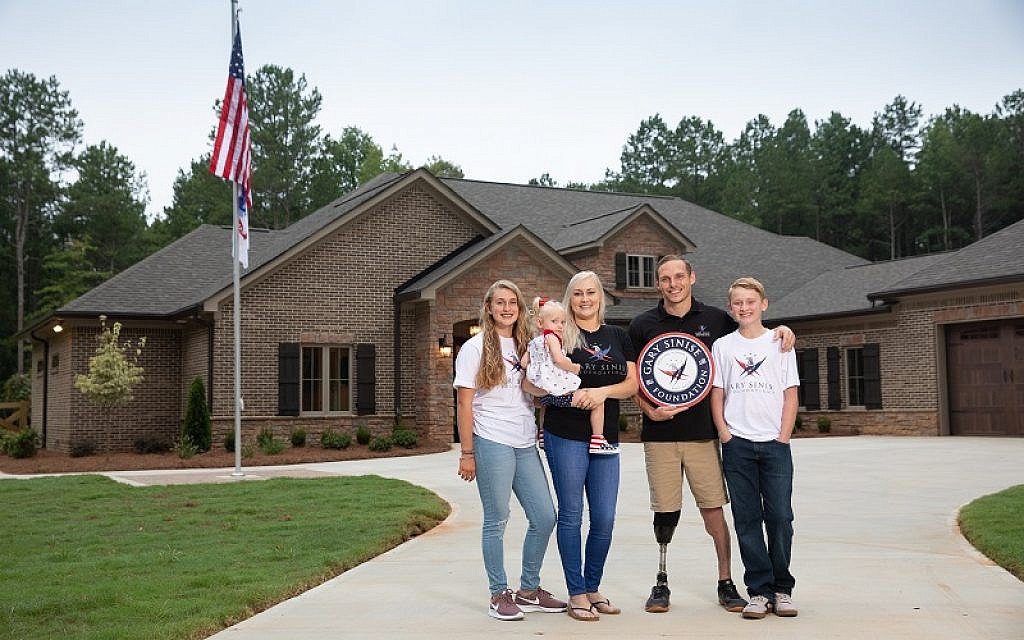
Sgt. Eric Hunter of Fayetteville lost one leg and shattered the other, and Sgt. 1st Class Michael Schlitz lost both hands and sight in his left eye, and 85 percent of his body was burned in Baghdad.
When they returned from service, they had trouble getting around their Georgia homes with wheelchairs and other mobility and medical devices. But that changed when they received new smart homes equipped with the latest technology, gadgets and modifications to make their lives easier.
“I am loving life in my house and I am loving my new community,” said Adams, who lost both legs above the knee and injured both his hands and his right arm while on a reconnaissance patrol. His new smart home is in Maysville, 70 miles northeast of Atlanta.
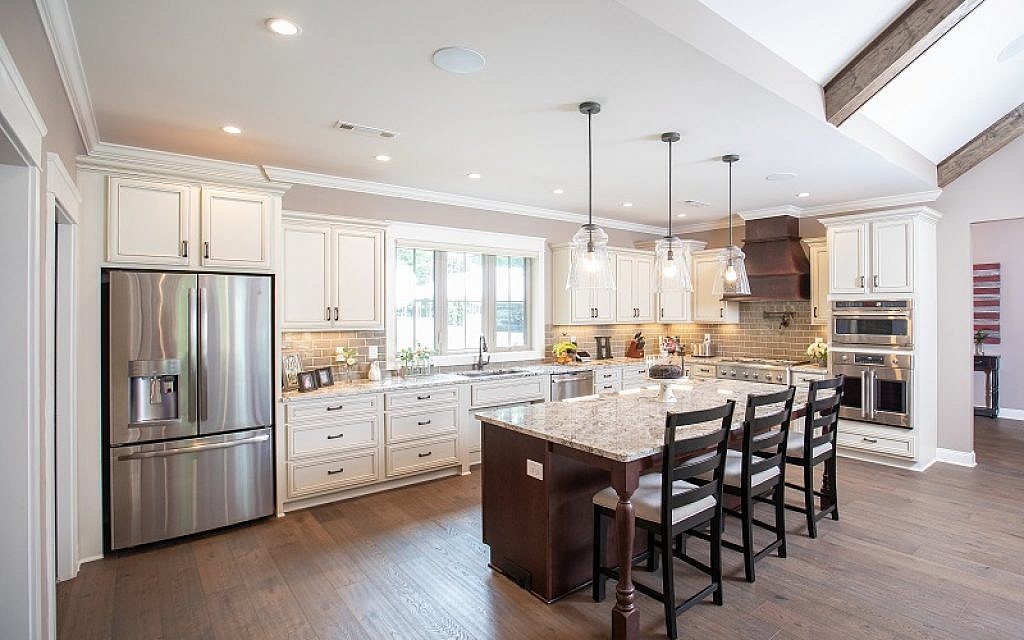
Adams and the other Georgia veterans are among 50 catastrophically wounded veterans the Marcus and Home Depot foundations have helped through the Restoring Independence Supporting Empowerment (R.I.S.E.) – adapted smart homes program of the Gary Sinise Foundation.
Sinise is an actor famous for his portrayal of Lt. Dan Taylor in “Forrest Gump,” partly filmed in Georgia, who’s lead actor, Tom Hanks, was in Atlanta last week for the 27th Book Festival of the MJCCA.
Over the last five years, Bernie Marcus and the Home Depot and Marcus foundations, have given or committed just under $20 million for the adapted homes. So far, 51 have been completed and 19 are under construction around the country. The R.I.S.E. homes are part of a larger mission by the Marcus and Home Depot foundations to help veterans.
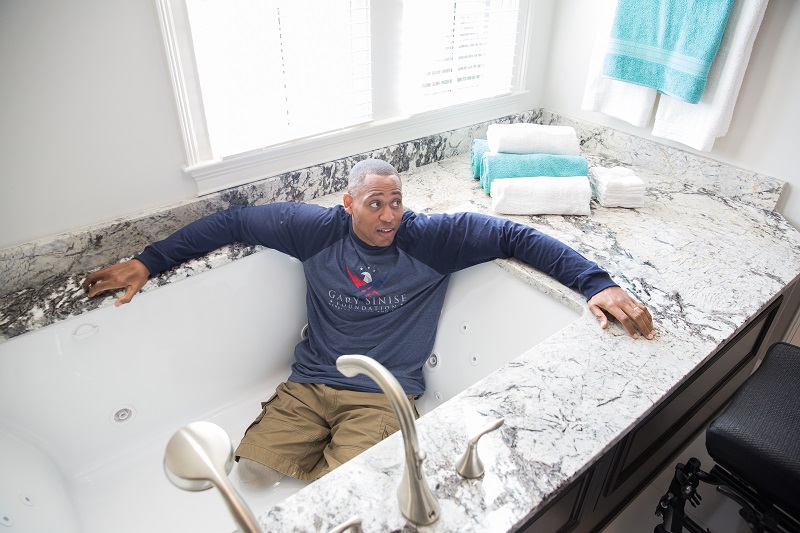
The contemporary mortgage-free homes are designed specifically for the nation’s most severely wounded veterans to serve their individual needs. They are equipped with such automated features as doors, lighting, sound system, security, heating and cooling, along with wood floors, roll-up sinks, accessible appliances and cabinets.
The homes also are personalized for the vets’ hobbies such as special kitchens if they enjoy cooking or an auto body shop for those who like to tinker with cars.
King, who lives in Duluth, said his home has been one of the greatest gifts in his life.
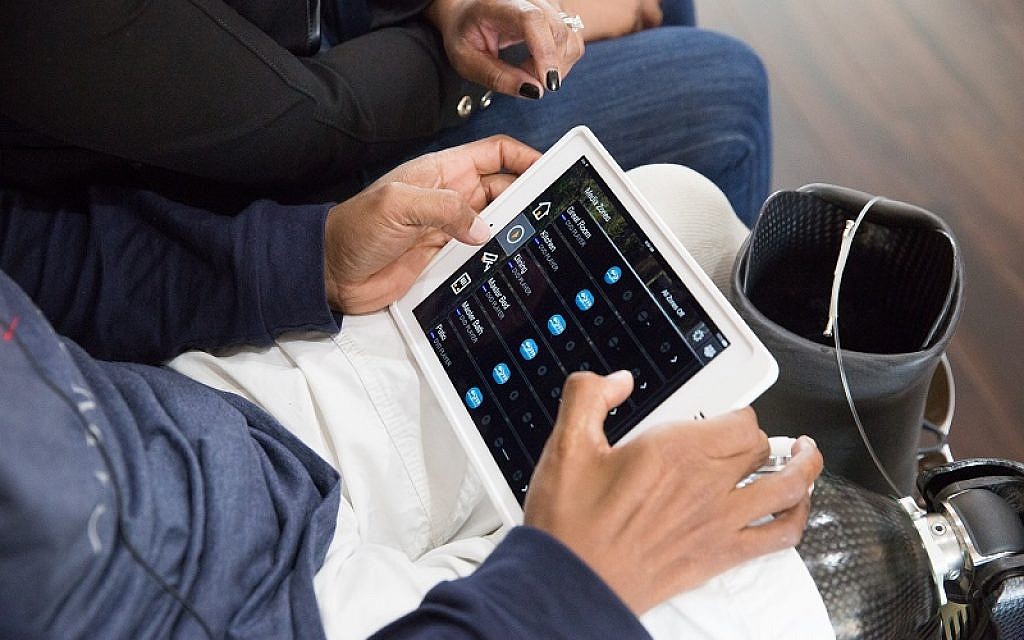
“My family and I wake up each morning in an incredible new reality. We love our home; it feels like we won the lottery every day. The overarching feeling is a deep gratitude for what … our God has blessed us with.”
His new Fayetteville smart home is like a dream, Hunter said. “Giving me my independence back and eliminating the obstacles I struggled with on a daily basis has given me the ability to no longer worry about my family’s future, but to put all of my time in loving my family and watching them grow with their Dad right by their side. That is a blessing of a lifetime.”
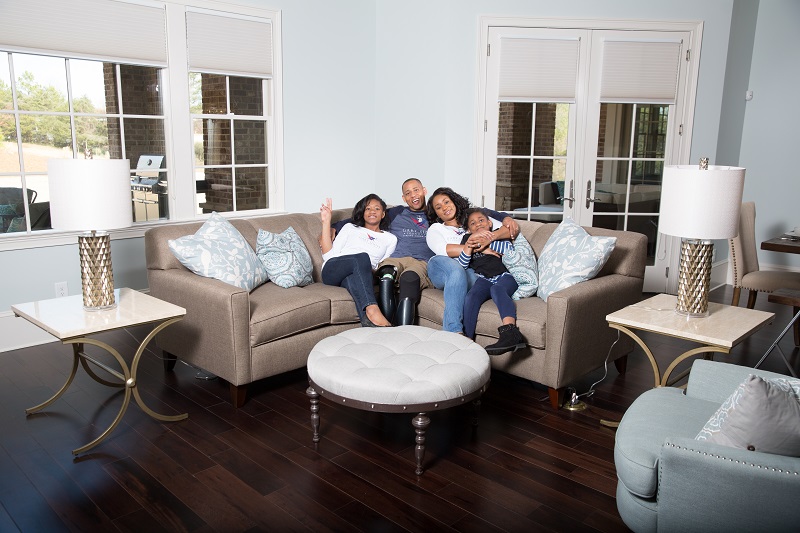
For the Georgia vets, the homes help them regain their freedom and dignity, a goal for all of the foundations involved.
“Once they move in, it changes life for the whole family,” said Judy Otter, chief operating officer for the Gary Sinise Foundation. “They are able to do things they weren’t able to do for years, things we take for granted that make a huge difference in their lives.”
Sinise said Marcus’ support of his foundation and the R.I.S.E. program “has been a major boost. His generosity has been transformational in the lives of so many veterans and their families. And as someone who spends numerous hours trying to rally support, knowing that he sees our work and progress as substantial and worthy of back up, is a great validation and blessing.”
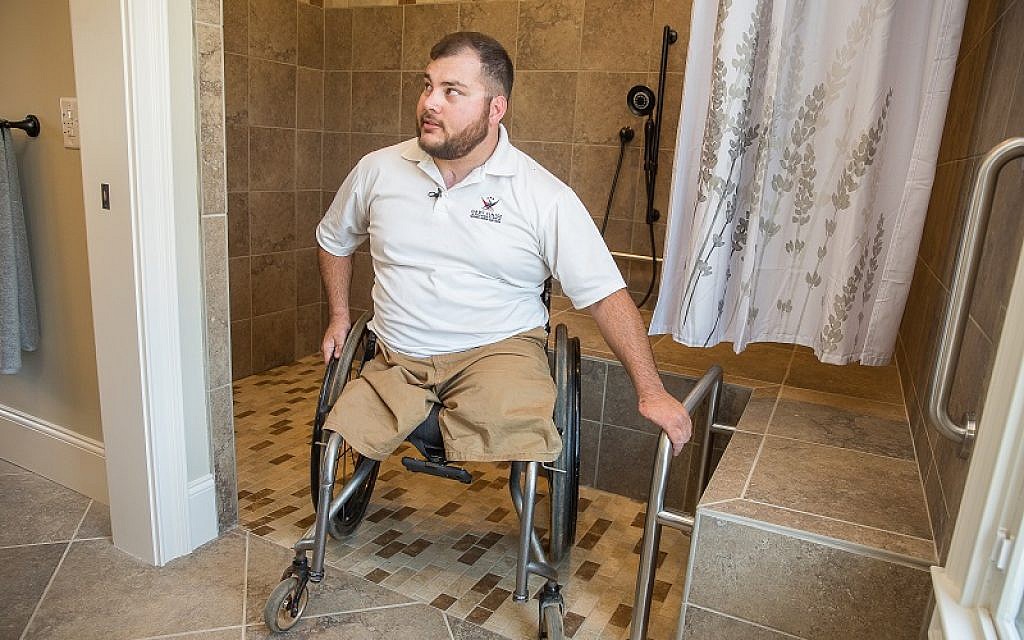
Marcus’ commitment to veterans seems to stem from his older brother, Irving, having served in the Battle of the Bulge in World War II. “He never was the same. It made a big impression on him [Marcus] he carried with him his whole life. It affected him,” said Marcus Ruzek, program director of the Marcus Foundation.
Ruzek also is a combat vet. “When we get to give a home away, those are the best days. It’s incredible. I had friends sacrifice at that level and I did some myself,” he said.
“It is so incredibly important for vets to get the level of care they deserve,” Ruzek said. “We feel they do not get that from the government, the honor and dignity they deserve after their service.”
In addition to the Marcus Foundation, the Home Depot Foundation gives cash and gift cards for the building of the smart homes, Otter said.
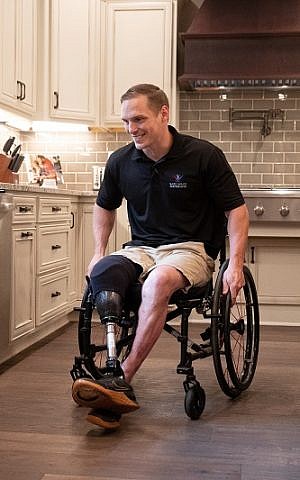
A strong commitment to veterans grew from the volunteer efforts of The Home Depot, said Frank Blake, former Home Depot chairman and CEO. Giving back to the community is among the core values of the nation’s No. 1 home improvement store.
In the aftermath of the Iraq War, Team Depot volunteers were helping more and more older and wounded vets update their homes, said Blake, whose son served in Iraq.
That there are homes “specially designed, particular for the injured vet to be able to utilize their house in a meaningful way, is terrific,” Blake said. “The smart homes specifically address their needs and give them a sense of dignity to be able to handle life on their own. Small things like using the bathroom can be an enormous thing.”
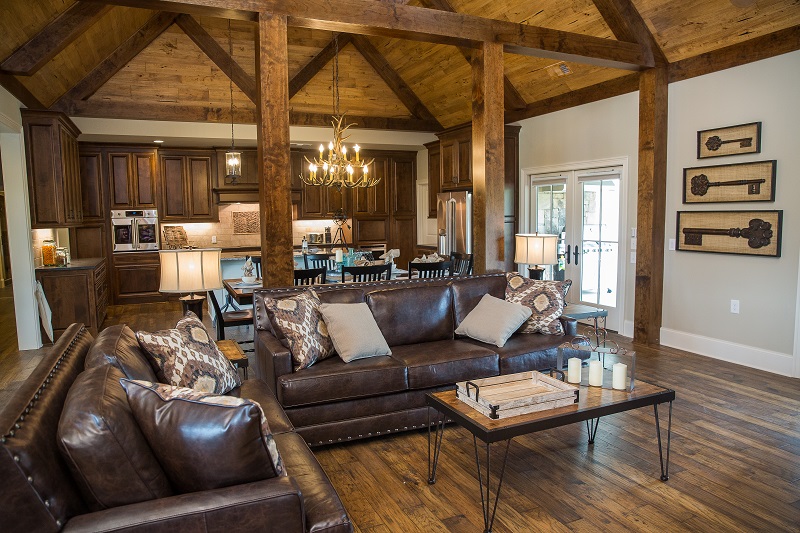
While the Home Depot and its Foundation are pleased to make a difference, “we always say we can never do enough for those who made the sacrifice,” Blake said.
“As proud as we are, we are aware that we owe them so much more.”
Logan C. Ritchie and Al Shams contributed to this report.



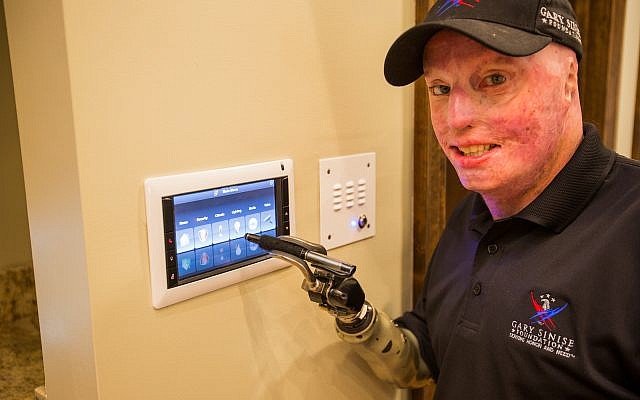
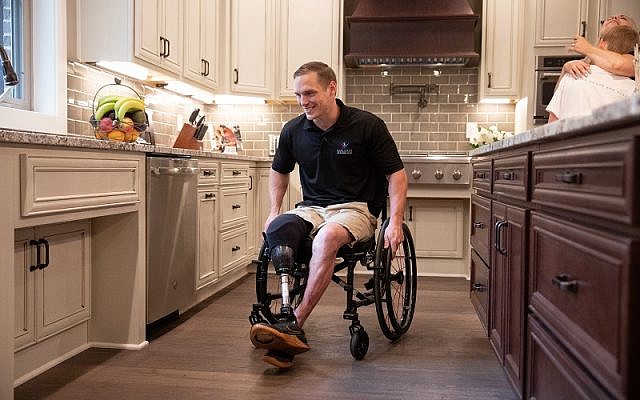
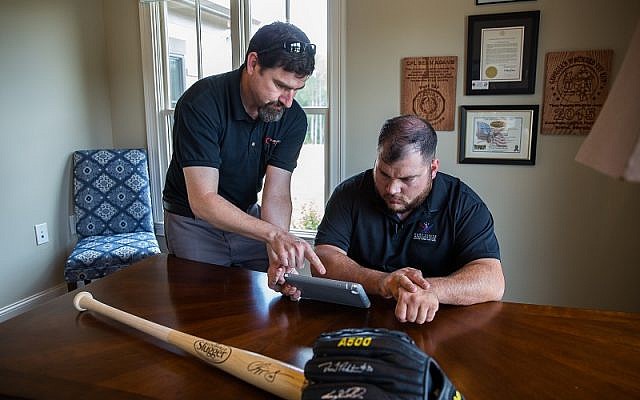
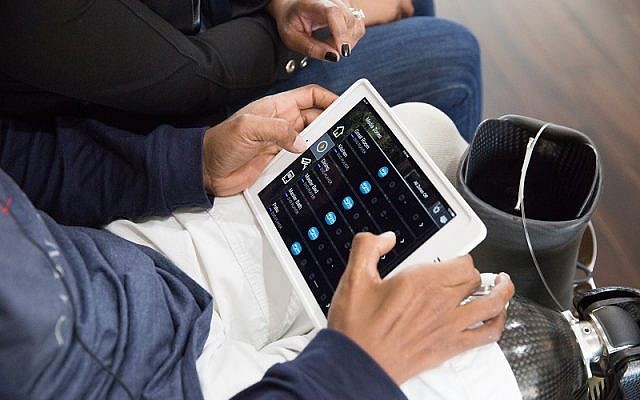
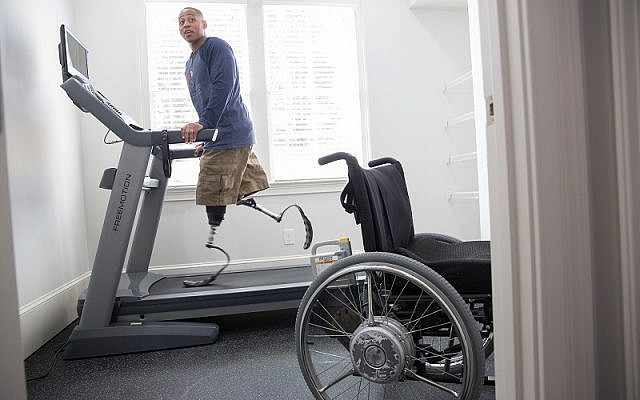
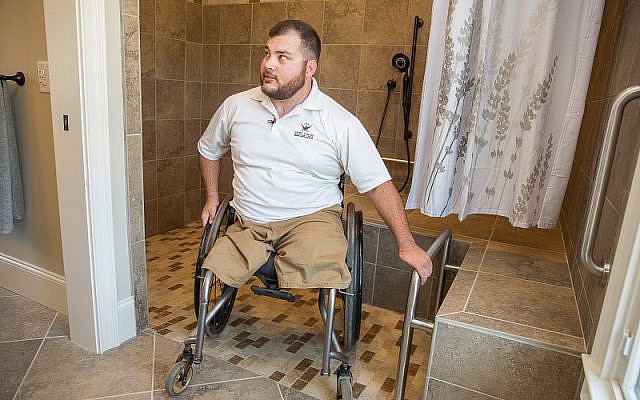
comments